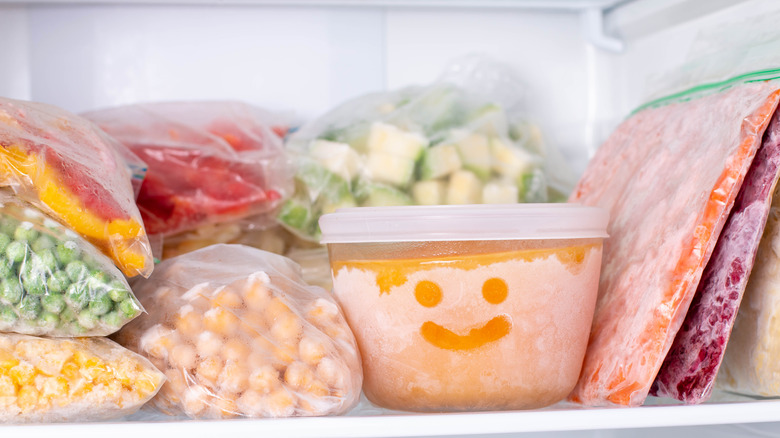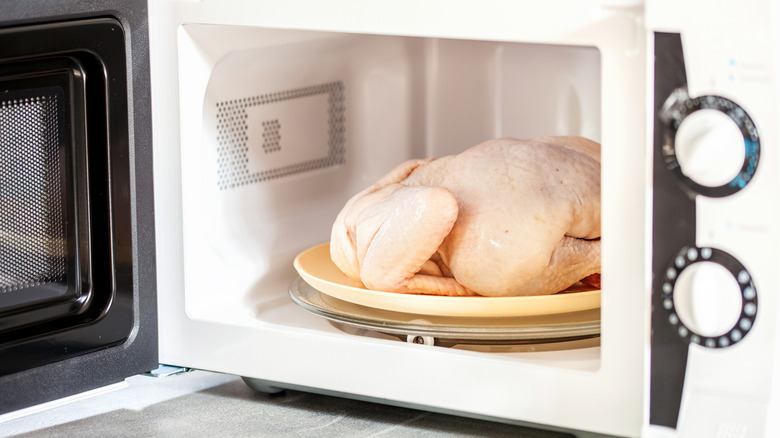Does Frozen Food Spoil Faster Than Fresh After Being Defrosted?
Food preservation has come a long way in the past century thanks to freezers and refrigerators. Nowadays, it's not uncommon for people to even have a full-sized chest freezer in their homes to store large quantities of food they may need in the future, beyond daily needs. Having access to a wide range of choices in your own home is certainly convenient and can make meal prep easy. However, some extra steps of care are required in order to avoid accidentally serving food that is no longer fresh.
It's easy to think that, once food is placed in the freezer, it will stay good indefinitely, but in fact, freezing it merely slows down bacterial growth (via University of Minnesota). The majority of microbial organisms will still be preserved and ready to come back in full force once the food is defrosted. Consequently, when food is removed from the freezer and thawed, Fine Cooking reports that it spoils far more quickly than fresh food. Here's why.
Thawing is the main culprit that makes food less fresh
The bacteria present in food doesn't just disappear during its time in the freezer. Therefore, unless you follow the appropriate methods for defrosting food, the microbes will run rampant if they hang around at room temperature for too long. Food safety terminology refers to temperatures between 40 degrees and 140 degrees Fahrenheit as the "Danger Zone," according to the CDC. It goes without saying that you should avoid keeping food within this range, which is why thawing food at room temperature is not a suitable option.
The USDA Food Safety and Inspection Service explains that, since food thaws unevenly, parts of it will be in the danger zone while the rest of it may still be rock hard. Unfortunately, this is the perfect environment for bacteria to grow, causing more risk for food poisoning. To steer clear of any sickness related to improper thawing, the USDA lists three acceptable methods to bring your food back from its frozen state — in the refrigerator, microwave, or in cold water.
Since the refrigerator will maintain food just under 40 degrees Fahrenheit, it will not enter the danger zone and, in turn, it should be safe to consume food that's been thawing and kept in the fridge, even a few days after (via USDA). If you need a quicker method, place the frozen goods in a sealed bag and submerge them in cold water, a particularly good trick for chicken. Alternatively, you can use the defrost setting on a microwave to thaw your food. Keep in mind that these last two methods may bring the food within the danger zone, making it necessary to cook it immediately after.

